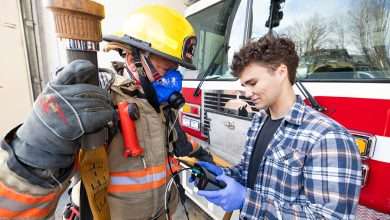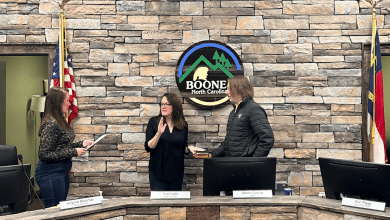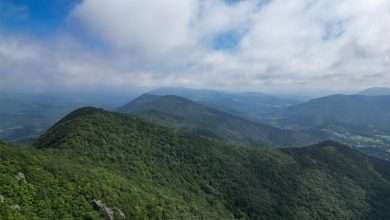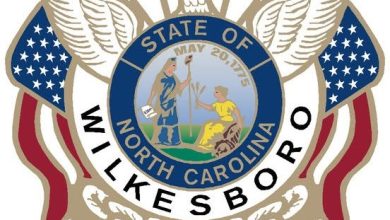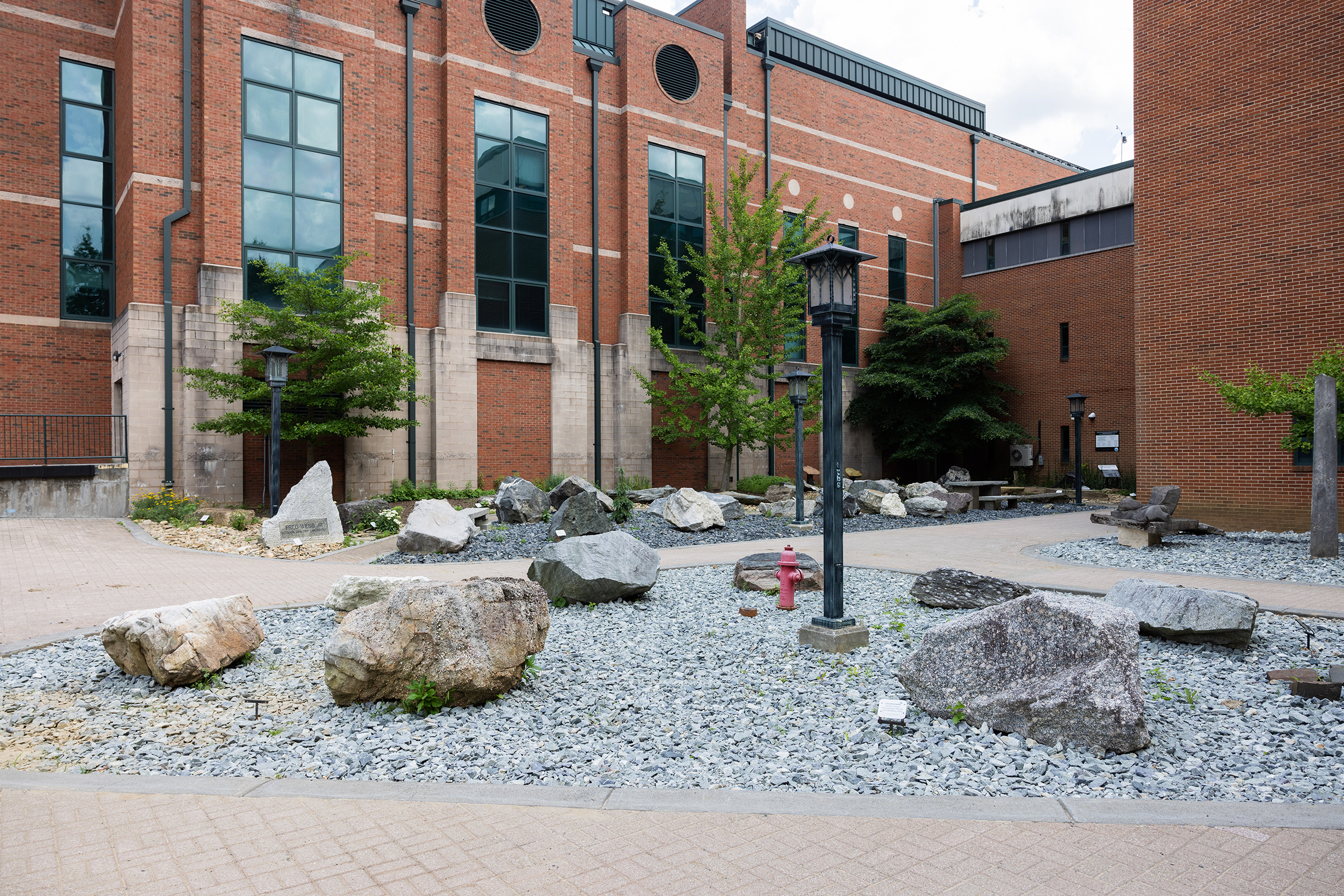
Last Updated on July 13, 2025 10:08 am
BOONE, N.C. — Appalachian State University’s Fred Webb Jr. Outdoor Lab and Rock Garden — a resource for geology students, researchers and K–12 school groups — has been fully restored after the damage it sustained from Hurricane Helene. The garden now features more than 50 boulders, including several new specimens.
When the historic storm hit the Boone campus last September, the rock garden, located adjacent to the Rankin Science Complex, experienced major flooding.
“Helene swamped everything,” said Dr. Andrew Heckert, director of the rock garden and a professor in App State’s Department of Geological and Environmental Sciences (GES). “This whole area had a huge amount of mud over everything, and our landscapers basically had to treat it like a snow removal, and that took out a lot of our landscaping as well.”
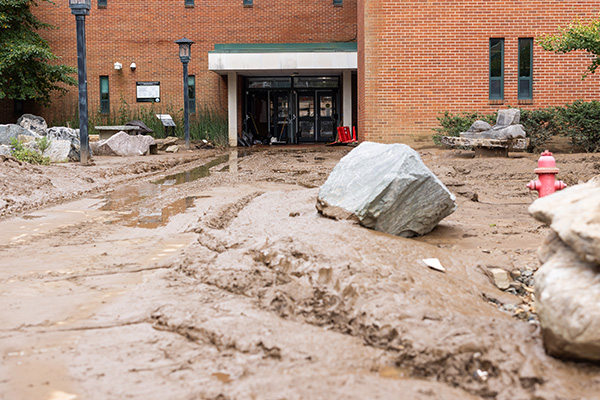
Initial cleanup led into the winter months, putting final restoration on hold until the spring. With help from App State Landscape Services and Vulcan Materials Co., which donated 60 tons of landscape rock, the garden was restored in a matter of days.
Four new garden boulders were delivered and installed in April, courtesy of Martin Marietta Materials and Albemarle Corp., and include Castle Hayne limestone specimens — the first rocks in the garden from North Carolina’s Coastal Plain region — as well as the garden’s first rock with crystals of spodumene, which is a lithium-bearing mineral. All of the additions are the first to be placed in the garden since the arrival of Archie the aetosaur, a bronze sculpture, in 2020.
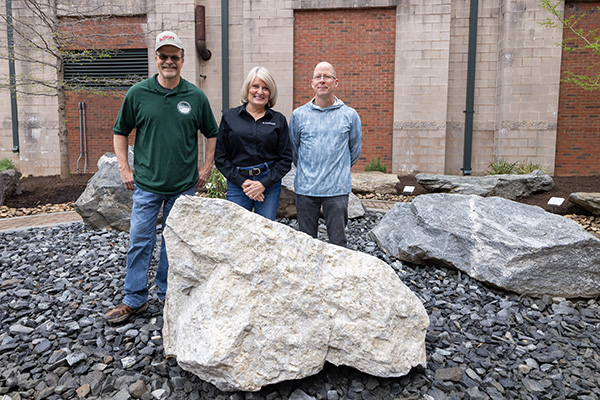
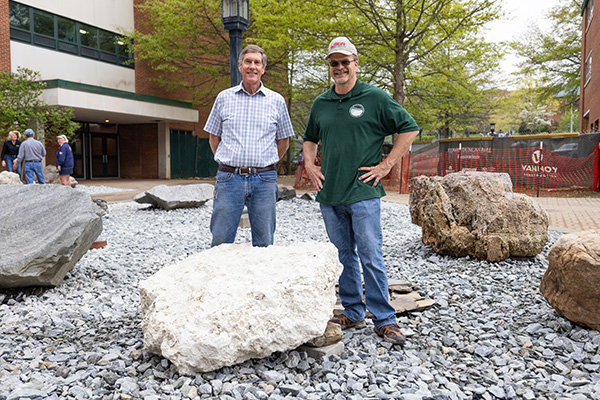
App State’s rock garden features boulders from different geological provinces across North Carolina, as well as from at least six different states. Examples include local specimens from around Grandfather Mountain, the sedimentary rocks from the Valley and Ridge in Virginia and ancient river deposits from the Cumberland Plateau in Tennessee. Many include igneous intrusions and other features that are too big to have in a lab.
Dr. Cynthia Liutkus, professor in and chair of App State’s GES department, said the rock garden’s restoration was an important piece in healing the Rankin Science Complex — and the hearts of those who work there.
“I literally walk through the rock garden every day on my way into work, so to see it back to normal feels amazing,” she said.
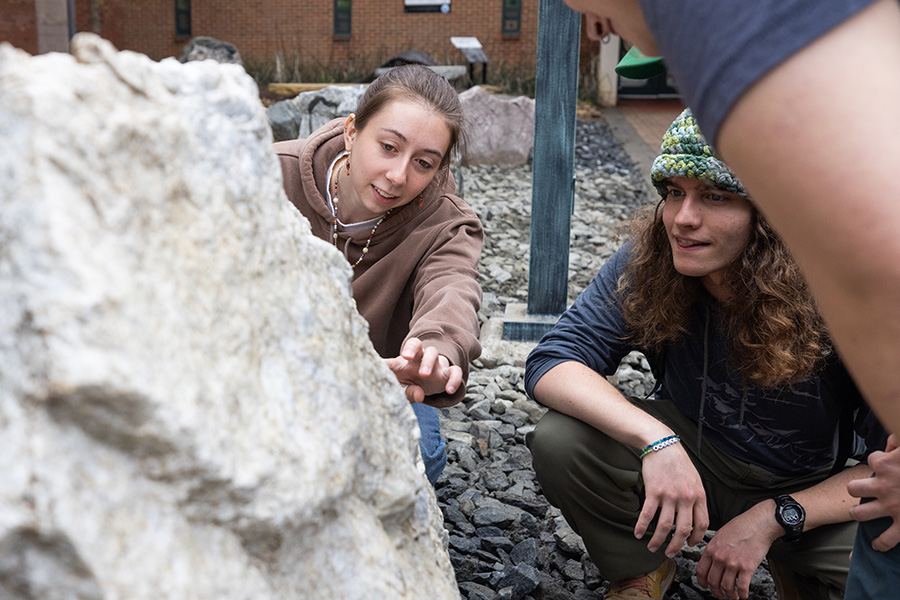
App State’s rock garden is a hub for research, outreach and curiosity
App State’s rock garden is an essential tool for geology students, but it’s also used regularly by researchers and for K–12 educational outreach events, campus tours, campus events and more.
App State alumna Dr. Annie Klyce ’19, a former student of Heckert’s and an assistant professor of practice in the Department of Earth and Environmental Sciences at Vanderbilt University, used the garden in a variety of ways during her time at App State.
“The rock garden was monumental for me,” said Klyce. “So much so that I just secured enough boulders to get us one here at Vanderbilt — and it’s just magic.”
Klyce used the garden regularly in her geology classes to study mineral composition and rock types and to classify and document specimens. She also worked as an intern in the GES department’s McKinney Teaching Museum, which eventually led to her helping coordinate outreach events with Marta Toran, GES lecturer and outreach coordinator, and other App State faculty.
“I really love the Earth, and I really love understanding it, but I also care deeply about making sure other people understand it too,” Klyce said. “The rock garden kind of takes you on a mini world tour in a very small area, and so, practically speaking, it’s really useful. The samples we select really show you how diverse our planet can be — but also how similar it can be.”
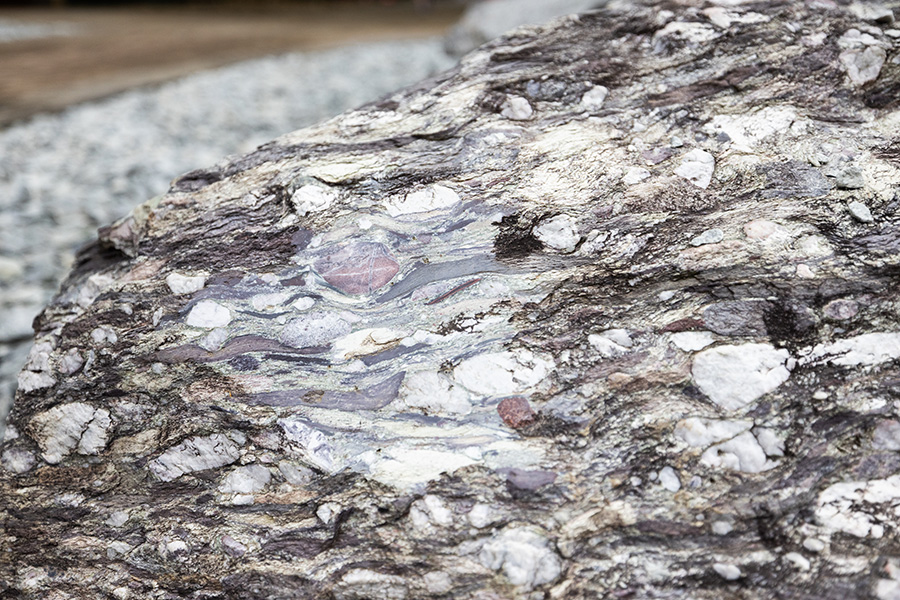
Liutkus said that samples in the rock garden are full of fossils and other great examples of economic materials — such as the spodumene lithium ore — which are significant for energy technologies, especially in North Carolina.
“Some rocks are relatively young geologically, and others are billions of years old,” she said. “It’s a great place for rock hounds and amateur geologists to see some pretty incredible stuff.”
Heckert added that the rock garden is also a relaxing place to visit or get work done on campus.
“It’s a perfect place to sit near and just be in a natural environment, and it’s in a reasonably secluded spot on campus,” he said.
For more information about the rock garden, including photos and boulder descriptions, visit earth.appstate.edu/research-facilities/facilities-indoor-and-outdoor/rock-garden.










